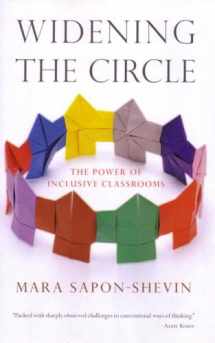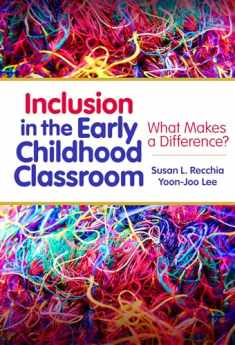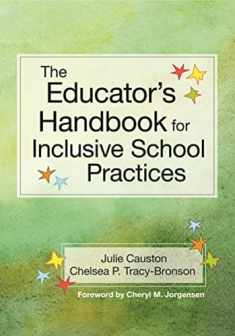
Widening the Circle: The Power of Inclusive Classrooms
ISBN-13:
9780807032800
ISBN-10:
0807032808
Edition:
1
Author:
Mara Sapon-Shevin
Publication date:
2007
Publisher:
Beacon Press
Format:
Paperback
280 pages
Category:
Education Theory
,
Workbooks
,
Study Guides & Workbooks
,
Schools & Teaching
FREE US shipping
Book details
ISBN-13:
9780807032800
ISBN-10:
0807032808
Edition:
1
Author:
Mara Sapon-Shevin
Publication date:
2007
Publisher:
Beacon Press
Format:
Paperback
280 pages
Category:
Education Theory
,
Workbooks
,
Study Guides & Workbooks
,
Schools & Teaching
Summary
Widening the Circle: The Power of Inclusive Classrooms (ISBN-13: 9780807032800 and ISBN-10: 0807032808), written by authors
Mara Sapon-Shevin, was published by Beacon Press in 2007.
With an overall rating of 4.5 stars, it's a notable title among other
Education Theory
(Workbooks, Study Guides & Workbooks, Schools & Teaching) books. You can easily purchase or rent Widening the Circle: The Power of Inclusive Classrooms (Paperback) from BooksRun,
along with many other new and used
Education Theory
books
and textbooks.
And, if you're looking to sell your copy, our current buyback offer is $0.6.
Description
Widening the Circle is a passionate, even radical argument for creating school and classroom environments where all kids, including children labeled as "disabled" and "special needs," are welcome on equal terms.
In opposition to traditional models of special education, where teachers decide when a child is deemed "ready to compete" in "mainstream" classes, Mara Sapon-Shevin articulates a vision of full inclusion as a practical and moral goal. Inclusion, she argues, begins not with the assumption that students have to earn their way into the classroom with their behavior or skills, it begins with the right of every child to be in the mainstream of education, perhaps with modifications, adaptations, and support. Full inclusion requires teachers to think about all aspects of their classrooms—pedagogy, curriculum, and classroom climate.
Crucially, Sapon-Shevin takes on arguments against full inclusion in a section of straight-talking answers to common questions. She agrees with critics that the rhetoric of inclusion has been used to justify eliminating services and "dumping" students with significant educational needs unceremoniously back into the mainstream with little or no support. If full inclusion is properly implemented, however, she argues, it not only clearly benefits those traditionally excluded but enhances the educations and lives of those considered mainstream in myriad ways.
Through powerful storytelling and argument, Sapon-Shevin lays out the moral and educational case for not separating kids on the basis of difference.
In opposition to traditional models of special education, where teachers decide when a child is deemed "ready to compete" in "mainstream" classes, Mara Sapon-Shevin articulates a vision of full inclusion as a practical and moral goal. Inclusion, she argues, begins not with the assumption that students have to earn their way into the classroom with their behavior or skills, it begins with the right of every child to be in the mainstream of education, perhaps with modifications, adaptations, and support. Full inclusion requires teachers to think about all aspects of their classrooms—pedagogy, curriculum, and classroom climate.
Crucially, Sapon-Shevin takes on arguments against full inclusion in a section of straight-talking answers to common questions. She agrees with critics that the rhetoric of inclusion has been used to justify eliminating services and "dumping" students with significant educational needs unceremoniously back into the mainstream with little or no support. If full inclusion is properly implemented, however, she argues, it not only clearly benefits those traditionally excluded but enhances the educations and lives of those considered mainstream in myriad ways.
Through powerful storytelling and argument, Sapon-Shevin lays out the moral and educational case for not separating kids on the basis of difference.


We would LOVE it if you could help us and other readers by reviewing the book
Book review

Congratulations! We have received your book review.
{user}
{createdAt}
by {truncated_author}




